Interview with Torquil Campbell from Stars
Earlier this month, Canadian indie pop band Stars unleashed their sixth studio album, The North. What followed were good reviews, and a debut week that found them at the number 5 spot on the Canadian Album charts, the number 3 spot on the Canadian Digital Charts, as well as cracking the Top 50 in the U.S.A. If you thought things couldn’t get any better for the band, they agreed to chat with PeteHatesMusic about the record, undoing all momentum they’ve earned in the past 10+ years.
Stars, consisting of singers Torquil Campbell and Amy Millan, bassist Evan Cranley, piano/keyboard player Chris Seligman, and drummer Pat McGee, grew up in Toronto, but found success after recording albums in Montreal. After finding critical claim with 2003’s Heart and furthered by 2004’s Set Yourself on Fire (both nominated for Alternative Album of the Year at the Juno Awards), the band went onto release a couple more successful albums, and more recently, The North. PeteHatesMusic caught up with Torquil Campbell on the phone when the band was in Boston near the start of their tour to chat about their heart break lyrics, making records that don’t sound dated, and the very, very terrible man that is the Canadian Prime Minister, Stephen Harper.
PeteHatesMusic (PHM): After being dropped for The Five Ghosts, it seems that the brief spoken word intro to your albums has returned, with a speech at the beginning of the first song, Theory of Relativity. What is the significance of these introductions for you guys?
Torquil Campbell (TC): I just think they are good ways of sort of leading people into the record. I don’t know – I’ve always liked spoken word intros when I get into a record. They’re like a conduit between music and life or something, you know? They give you a little moment to get ready to listen. And I’m a big Saint Etienne fan, and they always used that stuff a lot. So I guess that’s where it sort of began as an inspiration. But I just like to put things into a context I guess, and having a little thing that’s someone saying something that kind of relates in some way to what you’re about to hear.
PHM: Kind of like a prelude to the album.
TC: Yeah. Yeah.
PHM: Asking if having children inspires and affects your lyrics or music seems like the sort of leading question you’d ask an athlete after a sports game.
TC: (laughter)
PHM: But do you feel a need to filter things or keep things clean because your young children might listen to your music? I noticed there’s a few swear words on The North.
TC: No, no, no. Absolutely not. I mean, no. One of the primary functions of pop music is to, you know, annoy your parents and be inappropriate. I mean, I don’t worry about that – at all. Language to me has never been – you can’t, you know… there’s not much harm that you can do with words. Words can be incendiary and they can be exciting and they can be offensive, but ultimately they are just words, you know? So I like swearing in rock music, I think it helps the kids relate. (laughter)
PHM: (laughter) Fair enough. Since you and Amy are both happily married – not to one another – I was wondering why the heart break lyrics still make appearances on several songs? Is it just characters that are being portrayed behind the lyrics or are you drawing from past experiences?
TC: Well, not really, no. I think that we’re just very engaged in writing songs about people who are at crucial moments in their life, you know, when they’re about to make a very stupid decision or a very beautiful decision. And those moments often come at the hands of love, so to me, it’s more about the kind of characters we’re trying to write about than it is something we’ve gone through, you know?
I’ve always sort of had a bunch of people in my head of a certain kind who live in a certain world and they tend to live on the edge of their experience. I think people – to some degree – they come to songs as a kind of sign post and mark those experiences in their own life, you know, and Stars have had some longevity, and I think part of the reason we have is because we deal with those moments in life that people kind of need a song for. And that often tends to be about someone loving you or not loving you, you know? And not just in a romantic sense, but in every kind of sense. Loss of friendship, loss of family, I mean, those things are the motivating factors in most of our lives.
PHM: I definitely agree with that.
TC: So I kind of feel like, why not use them? They’re so filled with tension and so filled with meaning for people that they seem to just lend themselves naturally to pop songs, you know?
PHM: Yes, that’s very interesting. So I guess Evan (Cranley, Amy Millan’s husband) doesn’t show up to the recording sessions, read Amy’s lyrics and say “What the hell Amy! Do we need to talk?!”
TC: (laughter) Well, you know, I think that probably does happen. But that’s the thing. That’s the weird thing about writing stuff and then…
PHM: ..putting it out there.
TC: …claiming it as your own in some way. You have to be pretty heartless in some way to use your own experiences because you’re going to be talking directly to people who you love, and who know what you’re talking about. So to me, I would rather write about other people, you know? My life is pretty ordinary, really, and of course I’ve had some moments in my life that weren’t ordinary, but I don’t know, I just find that we really want to write songs about you. We don’t really want to write songs about us, you know?
PHM: That’s interesting.
TC: That’s important for us.
PHM: To me, the album The North seems a little more mellow, some songs are a slower tempo compared to other Stars albums on a whole. Was this a conscience effort…
TC: …Really?!
PHM: Yeah, it does. Some of it.
TC: (slightly flabbergasted and possibly contemplating hanging up). That’s interesting. I mean, I think the back half of it is fairly mellow. But I mean, Heart (note: their excellent second album) is a really mellow record if you think about it. I don’t think we were aware of that, no. We tried to do, you know, we tried to put ourselves into recording certain sessions where we kind of echoed situations we had been in over the years that had resulted in a certain kind of music, and I think we tried to run all the different kind of Stars songs that we’ve had so far in our life, you know?
We kind of purposely put ourselves into different situations that would pull out different feelings in terms of the musical feel of what we were doing, you know? And that was…I don’t think we were consciously thinking about it being quieter. I mean in fact, it was made in quite a mood of happiness I would say. For this band, anyway.
Albums are funny – it’s how they strike you. You know, sometimes I’ll play a song, and the next night I’ll play it, too. It’s the same tempo both nights, but it feels way slower to me. And that’s a weird thing about the human body. We respond to tempo….
PHM: …and mood.
TC: …in a very individual way….yeah. So maybe you’re just operating at a faster frequency than I might be.
PHM: (laughter) That’s quite possible! (Note: Thanks for bailing me out, Torq!) Do you want your new songs to sound like that – new songs – or is it okay for them to slot in on past albums? You want to move forward, but there’s always an eye on the past.
TC: We’ve been trying for, well, since we got going, to write great pop songs. That’s the band that we are. We love the form of the pop song, the storytelling of pop songs, and I don’t think that we much care about saying “Okay, now we’re going to make a dubstep record. Now we’re going to make ‘this’ record”, do you know what I mean?
PHM: (laughter) Yes.
TC: That hasn’t been our pursuit. It’s just been about writing the best songs, putting together the best puzzles that fit together that we can. We change our instrumentation, we change our technical approach, and that informs the way the songs sound. But ultimately, we’re trying to write really, really memorable songs, with great choruses and with melodies that you want to listen to for a long time, for many years. That’s what I think is sort of our major goal, just to be a band whose records last in your life. So we don’t want them to sound too fashionable because fashion comes and goes, you know?
PHM: That’s very true.
TC: So we kind of want to make records that stand outside that sense of fashion, and don’t sound dated 10 years from now. We tend not to make decisions about sound or production that are going to limit the amount of time that people will be able to relate to it. Some records come out and they’re great in their moment, and then you listen to them 5 years later and they seem a little out of place.
(note: phone reception cut out for the end of Torq’s answer, so hopefully he didn’t stumble upon or reveal the meaning of life)
PHM: Most of your past albums have a loose theme between all of the songs. Would you say there is a theme to the North? Are we to take something from the inclusion of the Habitat 67 housing complex on the cover art?
TC: I would say it is less thematically linked than our other records. I would say we focused on writing individually great songs. We were definitely trying to make something comprehensive, something that spoke about where we were from, and the things that influenced us as kids. Habitant 67 is a building in Montreal and is from a time in Canada’s history that was very sort of hopeful, and quite quixotic and utopian. There were a lot of big, public projects and Canada seemed to be sort of coming into its own as a socialist-liberal democracy. Something that was kind of closer to a Scandinavian country than it was to the United States. And now we are more like the United States than the United States is. We’re being run by a very, very terrible man who wants to turn Canada into an oil field (note: Canadian Prime Minister Stephen Harper). So I guess using that picture was just a kind of wistful way of saying “Remember when the north was ‘this’ and not Enbridge pipelines?” That to me is, I guess, a way of looking at that photograph.
Also, I think that photograph is, you know, what you’re looking at there is a bunch of apartments. A bunch of little compact lives, and inside that building are hundreds of individual lives and, you know, I think that sort of echoes our songs. You go inside the building there and you find out a secret about what’s happening in their lives. I think it kind of plays on a couple of levels. That sort of thing.
PHM: You should go hand out Stars records to the inhabitants of those apartments.
TC: That’s a good idea! We should do that. That’s a good idea.
PHM: Hold On When You Get Love and Let Go When You Give It is an interesting song title and features some nice interplay in the chorus between you and Amy, which I really like. The phrase actually made me think of the Beatles final refrain in the song The End, “And in the end / The love you take / Is equal to the love you make.” Is this a fair comparison or has it ever crossed your mind?
TC: It hadn’t, but I think it is a fair comparison. Absolutely. It’s just a truism. It’s not like….it’s been said in many ways before. But I guess ultimately what I was trying to say was you have to be reckless and unafraid, and you have to surrender, you know? If it’s going to work, you have to give your whole self to it. And when you get it, you have to be grateful for it, and you have to not question it, and you have to not fucking poke at it until it falls apart.
There’s a great Billy Bragg line that goes “The temptation to take the simple things we have in life apart to see how they work must be resisted because they will never fit together again” (note: from Must I Paint You A Picture). And I think that’s kind of what I’m trying to say. There’s a lot of problems and a lot of complications in this life of ours, and when you get something simple and true, hang on for dear life. And when you have something to give, give it away without guile, give it away without precaution. And don’t expect to win because you’re not going to win. We all lose, so accept that you’re going to lose and give it.
PHM: Related to the Beatles, my mom said that when I was in utero, she’d put headphones playing the Beatles to her stomach and now the Beatles are my favourite band.
TC: Oh yeah?
PHM: It seems like how marketing will get to future generations.
TC: Ha, that’s right.
PHM: Do the babies from the Stars family have any favourite bands, either forced or natural?
TC: Surprise, surprise – The Beatles. They seem to register with young kids a lot. My (3 year old) daughter is really into Dusty Springfield, she’s really into the Supremes. She really likes female soul singers. She likes that Adele record a lot. But mostly Dusty Springfield. She claims to like Stars, so I don’t know, maybe she’s being nice, but she seems very enthusiastic whenever they come on.
PHM: When one watches a movie or a television show, you never really know which other movies or shows exist in their “universe”, like if a character on the TV show The Wire can talk about watching another TV show like the Sopranos. I noticed the musical equivalent of this in the Stars catalogue – you have a lot of songs that reference “singing” or “songs”. The North has several songs or lyrics like this, like A Song is a Weapon, “What’s the use in writing one more song?” and “The world will listen to this song / and the radio will play it.” Is there a special reason behind this lyrical approach and mentioning songs and singing in your songs?
TC: (pause) I think it’s just a way of acknowledging what’s happening. It gives you license to be more direct, I guess, and I quite like the idea of pulling back the curtain on the illusion you create when you make music or when you perform something, you know? Acknowledging that you’re doing it somehow makes it like a trick of the light you can play on people, that makes them aware that they’re listening to a person sing rather than just a song as a disembodied recording.
PHM: It makes it more relatable.
TC: Yeah, in some way, I think. Maybe that’s why. The more you go on in music, and the more music you do, the more it becomes kind of a ludicrous thing to do. You have to acknowledge its ludicrousness and its artificiality in some way. And by doing that, you make it somehow more honest I guess. It’s an interesting question – I hadn’t really thought about it.
PHM: Thanks. Stars now have 6 albums and several EPs to draw your set lists from when you’re playing live. How do you guys pick the set lists – are there certain songs you feel you HAVE to play?
TC: It’s really hard. Yeah, there are. Your Ex-Lover is Dead, Elevator Love Letter, Take Me to the Riot, stuff like that. We do feel like people pay their money and they want to see the hits, you know? And we love playing them, so it’s no problem for us. It’s hard to decide which of the songs from the catalogue that we want to play that we should put in there. And it’s hard to remember which songs you played last time and that kind of thing. That is the hard part; we are still figuring out set lists for this tour. And that is very challenging. The more records you have, the harder it gets. You feel like you’re ignoring one part of your career or putting too much emphasis on another. And obviously for us right now, we just want to play the new record, really. That’s what we’re passionate about. So yeah, that’s a hard part of being in a band that’s been around for awhile. Just play a longer show – that’s my philosophy.
PHM: I guess it’s better to have too many songs than just one record, to keep things fresh and interesting each night.
TC: Yeah, yeah, for sure. Absolutely.
PHM: If I could get fired from this blog, I would if I didn’t ask this question: what bands or albums should our readers be rushing out to see and hear? What’s on your playlist these days?
TC: I really love the Jessie Ware record, I think that’s a great record. I really love that Field Music record that came out this year (note: both of these records were nominated for a Mercury Award, so Torq has good taste). I really love a band called Hooded Fang, who are from Canada and have put out a couple of albums. They deserve more attention than they get in my opinion. I love Saint Etienne and the Pet Shop Boys, who put records out this year, which for me, is pure heaven. I love both those bands. And, who else? You know what’s a really great record that has been completely ignored and I have no idea why? It’s this record Orkney Symphony by the Magnetic North. Have you heard this record?
PHM: No, I haven’t actually.
TC: It’s fucking beautiful. Go find it, it’s amazing. It’s really, really beautiful. It’s the guy from, you know Erland and the Carnival? You know that guy?
PHM: Yes.
TC: It’s his project. It’s a record about the Orkney Islands in the UK. It’s really beautiful. Anyone who likes Stars I think would like that one, so go find that one.
PHM: I’ll definitely add that to the list (note: all links above are to songs by the bands Torq recommended). Thanks for taking the time out of your schedule to chat with me.
TC: It’s been a pleasure. Thanks.
**
Stars are currently on their tour of North America, before heading over to Europe towards the end of 2012. Check out all of the dates here, and be sure to check out The North (which is slower and mellower than past Stars albums, depending on the frequency at which your body operates).
Since we both like Stars and general awesomeness, how about you follow PeteHatesMusic on Twitter and “Like PeteHatesMusic on Facebook” to ensure you don’t miss any more awesomeness that we can provide your life. It’ll be the smartest choice you’ll make today (note: this excludes any choices you make to eat gummi bears, because they are really delicious).


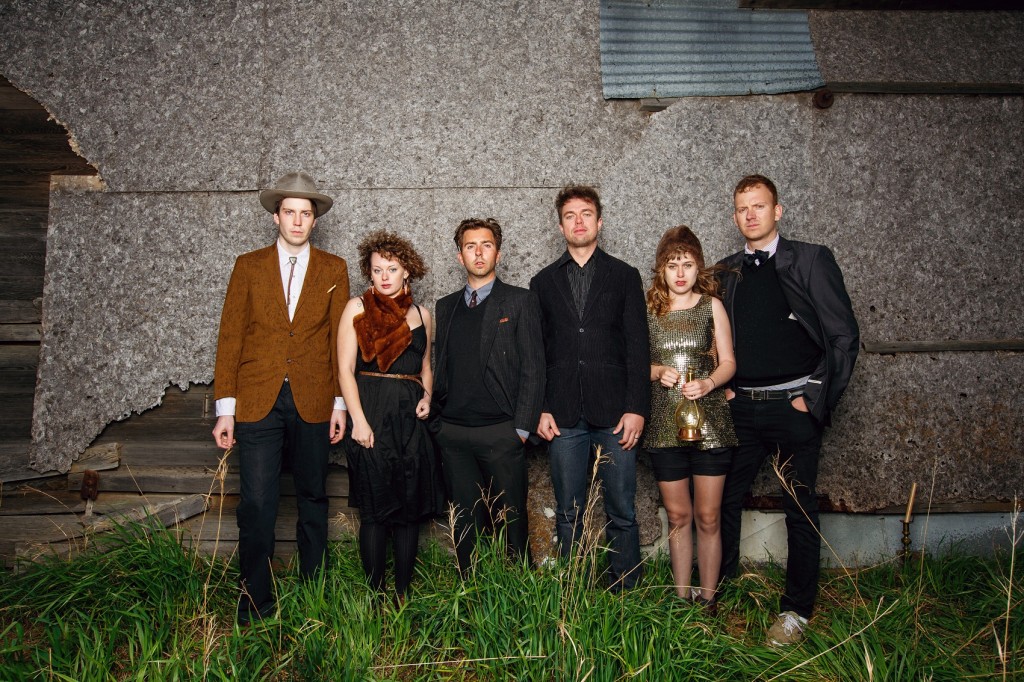


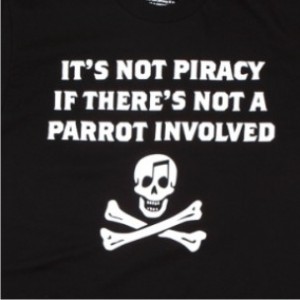
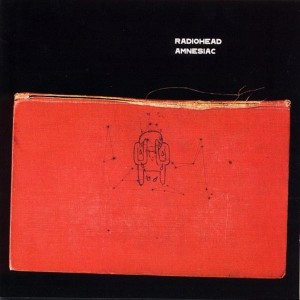
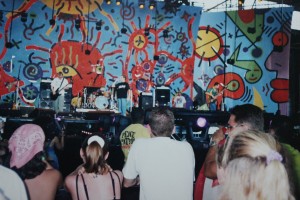
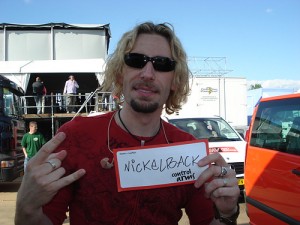
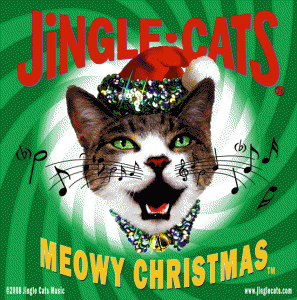








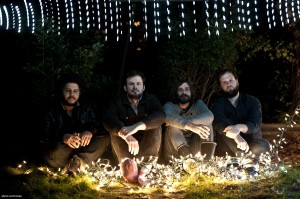

3 Responses
[…] only to be sold to a Scottish composer and turned into a song is up for best blog post, as is our recent interview with Torquil Campbell from Stars. On the same link as above, you can navigative to Best Blog Post and vote as you see fit. Yes, our […]
[…] on the heels of their interview with PeteHatesMusic (and many other much more interesting things), indie pop band Stars have a new video. The video is […]
[…] Stars (Name drop) […]